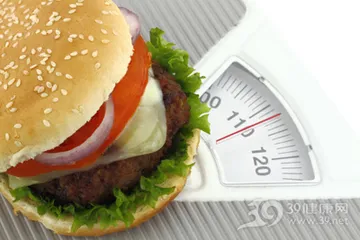What exactly is a calorie?
People who are trying to lose weight get anxious just looking at calories. What exactly is a calorie? Don't worry, don't worry, just hold onto the author, and the author will tell you the true face of calories.
Calories can't really be called a bad thing; they are actually just a unit of energy, known as calorie in English (the international unit of energy is joule), but this unit of heat energy has not been fully adopted. Some places often use the U.S. unit of heat energy—calorie (abbreviated as cal). China also commonly uses this unit.
除了焦耳和卡路里,常用单位还包括大卡、千卡(Kilocalorie)。焦耳、卡路里、大卡、千卡之间的换算如下:
1千卡=1大卡
1千卡(KCAL)=1000卡(CAL)
1卡(CAL)=4.1858518焦耳(J)
1千焦(9KJ)=1000J

Calories aren't something that eats people, but why do people trying to lose weight get anxious just thinking about them? This is because excessive calorie intake can make people gain weight!
Calories are widely used in nutrition labeling and fitness manuals. When we buy food at the supermarket, the labels will indicate the calories. The number of calories on the label reflects the calorie content of the food you are selecting. When we eat this food, the calories in it are used for metabolism and physical activity. If the food has high calories and the calories exceed the body's needs, the excess calories will accumulate and convert into fat, leading to weight gain. Therefore, people trying to lose weight will first check the calorie content of food before eating it.
How do the calories in food come about?
The energy the human body needs comes from three sources: carbohydrates, fats, and proteins. Minerals cannot provide energy. Since calories are a unit of energy, the calories in food also come from these three nutrients: carbohydrates, fats, and proteins. The energy supply capabilities of these three nutrients differ. 1 gram of fat provides 9 kilocalories of energy, while 1 gram of carbohydrates and 1 gram of protein provide 4 kilocalories each. Carbohydrates are easy to utilize, so among these three nutrients, carbohydrates are the main source of heat energy.
How many calories can you consume daily without gaining weight?
The number of calories consumed daily varies from person to person and cannot be generalized, but there is a formula to follow. If you want precise calculations, you need to understand two concepts: BMR (Basal Metabolic Rate) and REE (Resting Energy Expenditure).
BMR (Basal Metabolic Rate) is the minimum amount of heat energy required to maintain basic physiological functions in a person. Simply put, it's the heat energy needed to keep people in a vegetative state. Generally, the BMR needed per kilogram of body weight per hour is approximately equal to one large calorie. Under normal circumstances, people with a higher body weight will have a lower BMR per kilogram of body weight per hour compared to those who are leaner.
The formula for calculating a person's daily BMR is: Weight (kg) × 24 hours × 1 calorie
Example: A woman weighing 50 kg requires a minimum of 1200 calories per day: 50 × 24 × 1 = 1200
REE refers to the minimum energy expenditure at rest and is the minimum energy requirement for most people. There are many methods to calculate REE. Here, the author recommends the simplest method, which is: BMR × 1.1
Example: A woman weighing 50 kg has a daily REE of: 1200 × 1.1 = 1320
Although there is a formula to calculate the daily calories needed, due to the different activity coefficients of various physical activities, the calories required by people are not always equal to the calories calculated by the formula. To know the actual calories you need for the day, you need to consider your activity level. Here, the author provides two calculation methods:
First method: REE × activity coefficient
Reference activity coefficients:
Bedridden, activity coefficient is 1.2;
Sitting for long periods or walking, activity coefficient is 1.3;
Regular daily activities, activity coefficient is 1.5~1.75;
High-activity lifestyle, activity coefficient is 2.0
Second method
Engaging in low-intensity physical activity: Standard weight × 30 = required calories (kcal);
Engaging in moderate physical activity: Standard weight × 35~40 = required calories (kcal);
Engaging in heavy physical activity: Standard weight × 45~60 = required calories (kcal)
Standard weight = height (cm) - 105
There are many ways to calculate daily calorie needs. If you find it too complicated, just remember that generally, daily calorie intake must be above 1200 large calories. For women, consuming about 1500 large calories can help lose weight, while for men, consuming about 1800~2000 calories can help lose weight.
For more weight loss methods, follow our WeChat official account
「39减肥」WeChat ID: paireliang←Long press to copy)
